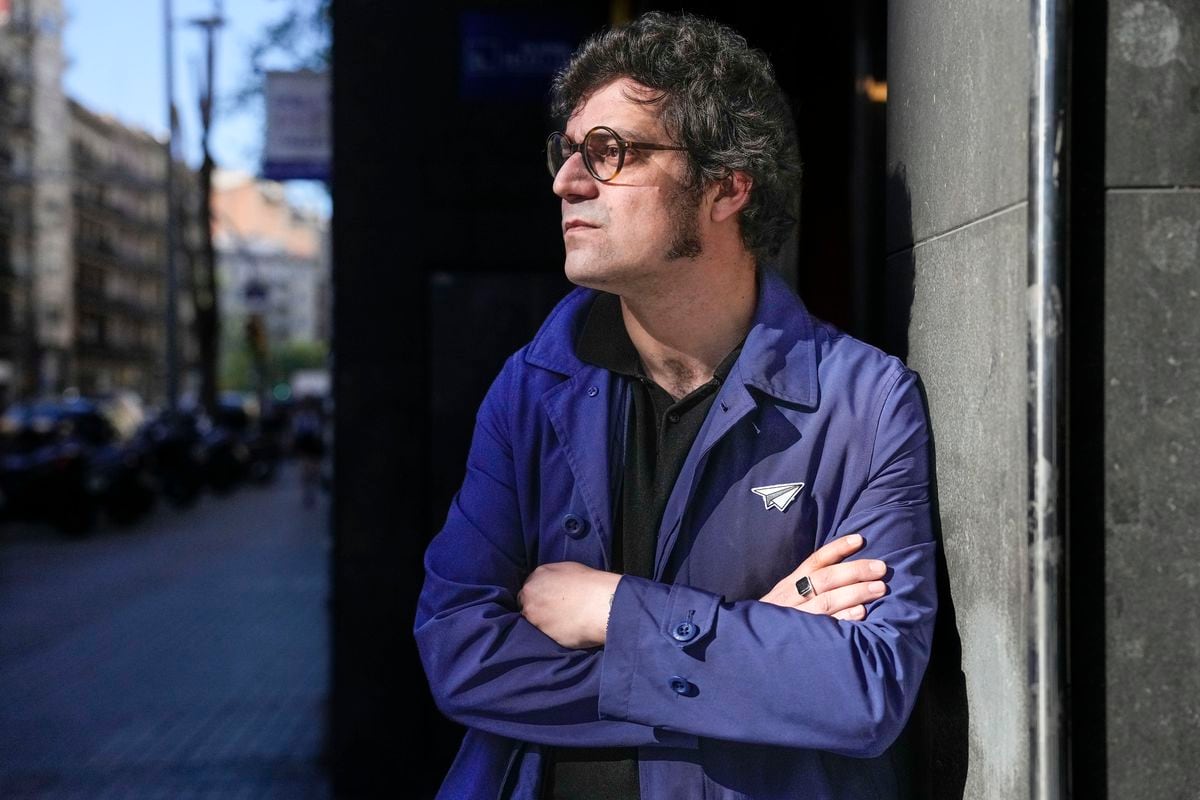We are used to identifying Miqui Otero (Barcelona, 1980) with the great tradition of the novel about his city, reinterpreted in a generational key.
Orchestra
represents a curious turn, since it moves to other latitudes (Galicia, but, in a way, all of Spain) and chooses a really suggestive narrative voice to structure a kind of Berlanga-style sequence shot, with characters entering and leaving focus , crossing and accumulating throughout a night of town festival. That voice is, hold on, the Music played by that orchestra of the title; although, in a kind of parallel montage, the passages that she narrates are combined with others in which different characters are having conversations with a writer named Miguel (a 42-year-old guy who lives in a big city, who would like to write “ dancing” and which, now that I think about it, is suspiciously reminiscent of the author himself…), unfolding a classic and plausible story of abuses of rural power, gender and class prejudices, hopes and frustrations of a lineage, a municipality, a country.
Although this structure is perceived as executed with very obvious lines, Otero's skill manages, for better or worse (we will return to this later) to achieve the desired polyphonic impression from the beginning. Or, rather, from the beginning, because
Orchestra
gives the sensation of starting several times: first, with the deliberately
kitsch
description of a summer dawn after the patron saint's day; then, with the introduction of that Music that tells us the story; finally, with the presentation of the character of the Count, a dying figure who represents the old regime with its legacy in the present and who reminds us (with, perhaps, excessive explicitness) that, in good books, such as
Memories from beyond the grave
, “the The deceased who is veiled is a whole world.” From there, the novel is delivered at a constant pace, punctuated by pop references (because, of course, the orchestra plays and plays, and the Carrá gives it as much as Rosalía, the postwar period as the Movida, the grandparents as the grandchildren... ) and somewhat predictable italicized Galicianisms.
“There is no other time of the year when the great comedy of life is performed,” Music emphasizes in a passage of the novel, and as I record this quote I am tempted, I don't know if for the second or third time, to attribute it to excessive obviousness. , and I fear that it is no coincidence: in fact, I have the feeling that
Orchestra
is too obvious in its intentions and in the way of structuring them, that it confesses its purposes too many times and erases too little the traces of its structural plan. To be faithful to their best idea (that is, that of a society as a convergence of multiple instruments), let's say that the band does not sound like such, but rather like a meeting of recognizable, even admirable, voices, resources and imaginaries, but, Alas, they do not fully graft themselves onto each other.
This does not prevent, as I have said before, the feeling of verisimilitude and honesty from being sustained without waning (just like that of ambition). It happens, in any case, that the change in scale and parameters that the author faces with
Orchestra
is taking on its particular share of inaccuracies. For the rest, Otero's style is still here, with that peculiar form of popular tenderness that has always characterized him since his debut with
Hilo musical
(2010), now in transition to an increasingly adult perspective, to a more sedimented melancholy that You begin to smell the arrival of that moment when “memory begins to disguise itself as desire.” By the way: “Everything reminds him of him (and that's why he writes)”, we read about the character-writer-Miguel, but, to tell the truth,
Orchestra
seems to be Otero's book with the greatest vocation of going beyond the author's own biographical experience. , the one with broader horizons. And, in the future, that is a path I want to pay attention to.
Orchestra
Miqui Otero
Alfaguara, 2024
288 pages. 19.85 euros
Look for it in your bookstore
_

